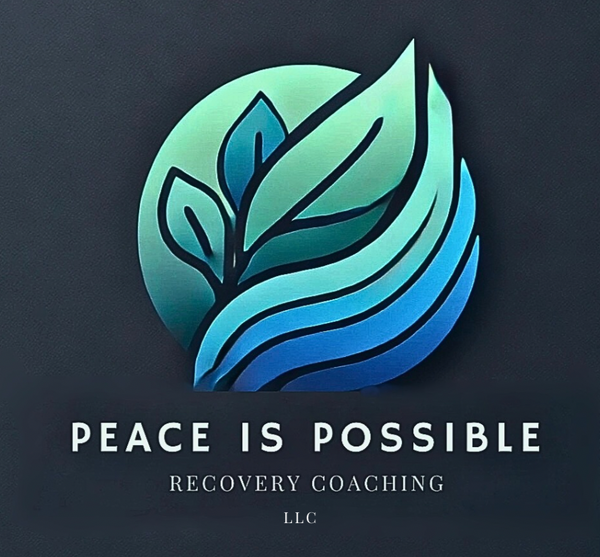Ronnie's Journey
I stepped out of my friend’s car in front of my apartment after a Halloween party in Washington D.C. I had no cash or cards because my Dad was holding onto them to prevent me from binge eating. I walked past my apartment, only half-aware that I was approaching the dumpster behind Starbucks and eating disposed pastries. Until guilt, shame, and desperation woke me up.
Have you been there, too? Let me help you.
Peace is Possible Recovery Coaching supports individuals struggling with eating disorders to make progress toward recovery. We help establish a healthier relationship with food, the body, emotions, and other people. Clients receive multi-faceted support to change behavior patterns, build healthy coping habits, navigate family and social dynamics, and gain self-awareness.
My name is Ronnie, and I created Peace is Possible because I deeply suffered from bulimia and binge eating, and I want to share the life-saving practices, tools, and principles that freed me from shame, depression, and self-hate.
I started struggling with bulimia and binge eating in 2014 during undergrad. Even though I was seeing a therapist, I couldn’t control my urges to eat past the point of fullness. I was distracted by the desire to consume food, rushing to find it between classes. I felt immense shame and diminished confidence.
After graduating, I began Peace Corps service in Paraguay, and the shift in environment helped me adopt healthy habits. However, the stress and isolation eventually caught up with me. For the last two weeks of my service, I binged on food and alcohol, isolating myself in a deep depression. I left the house only to buy junk food and rushed home before people saw me. The guilt ate away at me, so I numbed myself by gorging until I fell into a “food coma.” I was medically evacuated just a month before completing my service. Despite my accomplishments, I felt like a failure.
When I returned to the U.S. in March 2019, I began seeing a new therapist who introduced me to Overeaters Anonymous (OA). That’s when my recovery journey deepened. The process was rocky, and I relapsed countless times, often deceiving my family and canceling social plans because of sickness from binging. But I learned something valuable after each relapse. By the summer, I had begun to abstain from these behaviors just in time to start grad school at Georgetown University.
Grad school brought immense stress, with constant reading, studying, and writing papers on global poverty, conflict, and climate change. I spent evenings commuting to OA meetings, but I found comfort in food and alcohol once again.
Desperate for help, I sought more support. My Dad came to live with me for two months, holding onto my credit cards and money so I couldn’t buy food. He shopped for me, met me before and after classes, and helped me through moments when I felt compulsions to binge. Slowly, changes began to happen. I spent more time at OA meetings, started working out with friends, developed mindfulness practices, and adopted a more positive outlook.
After months of painstaking effort, I slowly gained peace. While there have been challenging times since, they taught me the importance of community, balance, and spiritual nourishment.
Today, I have the healthiest relationship with food since childhood. I can enjoy foods that once triggered me and treat food as fuel for athletic performance. I can go to BBQs, restaurants, and the grocery store without anxiety.
Apart from my own experience in recovery, I am confident that I can help you find peace. Friends and acquaintances often tell me I make them feel calm, understood, and appreciated. This is partially due to my demeanor, but also due to my application of coaching skills, studied in undergrad and honed during Peace Corps. For example, I worked with community members to help them establish the town's first public library, free IT classes, an organized and publicized farmers market, environmental education, school recycling programs, a volunteer youth-literacy program, Boy and Girl Scouts leadership and community service projects, and the construction of a flood-proof bridge. I love, and am adept at helping people reach their goals.
If you earnestly want to recover and are open-minded to trying new approaches, I’m confident we can make progress together. Peace is Possible.
